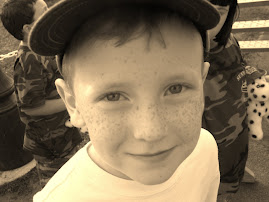Tucked between the ten month fray of the school year comes the oasis of summertime. And, for me, The Library Diva, I fill my summer with reading and philosophizing (AKA coursework toward my Masters in Teacher Leadership). So, beginning this course of curriculum development, I delve deeply into readings of what is curriculum? What is education? And, finally, what does it mean to be educated? Some well known authors, Parkay, Wiggins & McTigue, write long and thoroughly about how we should be teaching students and the most important and effective ways to implement curriculum.
But, before I can even begin to conceptualize the curriculum, I must think about and define for myself what it means to be an educated person. There are a few things I know for sure. First, to be educated does not necessarily mean a person has gone through a formal education system as we might envision. In so many examples, there are many, many people who are clearly educated but have taken alternate routes to get there. One example is Paul Orfalea (founder of Kinkos) who certainly created his own experiences to become educated, and clearly boasts that school was, at best, a traumatic experience. Abe Lincoln, upon arriving in Washington DC as newbie Congressman, filled out his paperwork and under education he wrote "defective." Even my husband, an elevator mechanic, learned for years in both an apprentiship and classroom setting to master the trade, is certainly educated. So, one thing I know for sure is that to be educated does not necessarily mean a person has followed the traditional education route. As Mark Twain said, "I never let my schooling interfere with my education."
an elevator mechanic, learned for years in both an apprentiship and classroom setting to master the trade, is certainly educated. So, one thing I know for sure is that to be educated does not necessarily mean a person has followed the traditional education route. As Mark Twain said, "I never let my schooling interfere with my education."
And so, with that in mind, my latest thinking boils down the answer of 'what it means to be educated' to a simple sentence: the ability to use what you know to function in society. An educated person has learned, whether through traditional classes, apprenticeships, experiences, literature or other resources, the knowledge they must have to live within the constructs of society. Society requires a certain knowledge base in a field that sustains an income to provide, at the very least, the basic necessities.
For myself, on a personal level, the feeling of being a bit 'uneducated,' or simply wanting to know more, the constant quest for knowledge, the desire to expand my thinking, to leave the old way of thinking behind with the discovery of new knowledge, the realization I know what I don't know, keeps me here, reading and philosphizing, in the oasis of summertime.
But, before I can even begin to conceptualize the curriculum, I must think about and define for myself what it means to be an educated person. There are a few things I know for sure. First, to be educated does not necessarily mean a person has gone through a formal education system as we might envision. In so many examples, there are many, many people who are clearly educated but have taken alternate routes to get there. One example is Paul Orfalea (founder of Kinkos) who certainly created his own experiences to become educated, and clearly boasts that school was, at best, a traumatic experience. Abe Lincoln, upon arriving in Washington DC as newbie Congressman, filled out his paperwork and under education he wrote "defective." Even my husband,
 an elevator mechanic, learned for years in both an apprentiship and classroom setting to master the trade, is certainly educated. So, one thing I know for sure is that to be educated does not necessarily mean a person has followed the traditional education route. As Mark Twain said, "I never let my schooling interfere with my education."
an elevator mechanic, learned for years in both an apprentiship and classroom setting to master the trade, is certainly educated. So, one thing I know for sure is that to be educated does not necessarily mean a person has followed the traditional education route. As Mark Twain said, "I never let my schooling interfere with my education."And so, with that in mind, my latest thinking boils down the answer of 'what it means to be educated' to a simple sentence: the ability to use what you know to function in society. An educated person has learned, whether through traditional classes, apprenticeships, experiences, literature or other resources, the knowledge they must have to live within the constructs of society. Society requires a certain knowledge base in a field that sustains an income to provide, at the very least, the basic necessities.
For myself, on a personal level, the feeling of being a bit 'uneducated,' or simply wanting to know more, the constant quest for knowledge, the desire to expand my thinking, to leave the old way of thinking behind with the discovery of new knowledge, the realization I know what I don't know, keeps me here, reading and philosphizing, in the oasis of summertime.



1 comment:
I love the way your writing went "full circle." Being a teacher, you notice those things. If you read so many of the other responses to this very complicated question, you start to see that we are all thinking about this question very deeply and have all come up with similar (yet expressed differently) thoughts.
Off topic...love your "little girl" picture!
Post a Comment